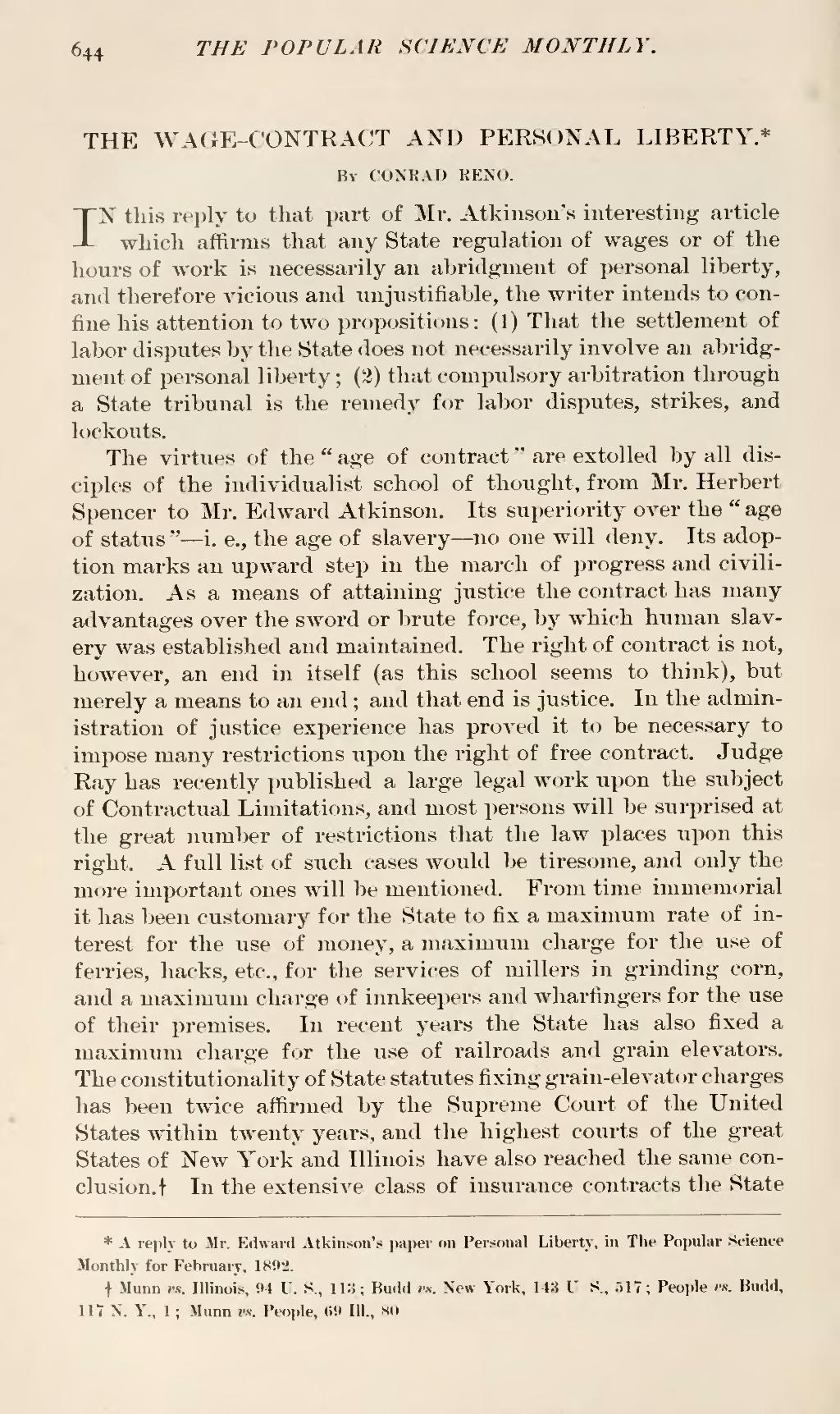| THE WAGE-CONTRACT AND PERSONAL LIBERTY.[1] |
By CONRAD RENO.
IN this reply to that part of Mr. Atkinson's interesting article which affirms that any State regulation of wages or of the hours of work is necessarily an abridgment of personal liberty, and therefore vicious and unjustifiable, the writer intends to confine his attention to two propositions: (1) That the settlement of labor disputes by the State does not necessarily involve an abridgment of personal liberty; (2) that compulsory arbitration through a State tribunal is the remedy for labor disputes, strikes, and lockouts.
The virtues of the "age of contract" are extolled by all disciples of the individualist school of thought, from Mr. Herbert Spencer to Mr. Edward Atkinson. Its superiority over the "age of status—"i. e., the age of slavery—no one will deny. Its adoption marks an upward step in the march of progress and civilization. As a means of attaining justice the contract has many advantages over the sword or brute force, by which human slavery was established and maintained. The right of contract is not, however, an end in itself (as this school seems to think), but merely a means to an end; and that end is justice. In the administration of justice experience has proved it to be necessary to impose many restrictions upon the right of free contract. Judge Ray has recently published a large legal work upon the subject of Contractual Limitations, and most persons will be surprised at the great number of restrictions that the law places upon this right. A full list of such cases would be tiresome, and only the more important ones will be mentioned. From time immemorial it has been customary for the State to fix a maximum rate of interest for the use of money, a maximum charge for the use of ferries, hacks, etc., for the services of millers in grinding corn, and a maximum charge of innkeepers and wharfingers for the use of their premises. In recent years the State has also fixed a maximum charge for the use of railroads and grain elevators. The constitutionality of State statutes fixing grain-elevator charges has been twice affirmed by the Supreme Court of the United States within twenty years, and the highest courts of the great States of New York and Illinois have also reached the same conclusion,[2] In the extensive class of insurance contracts the State

